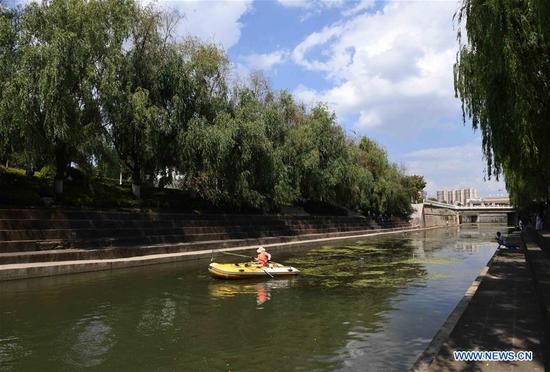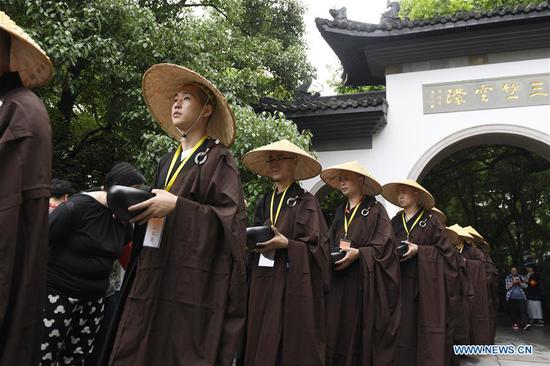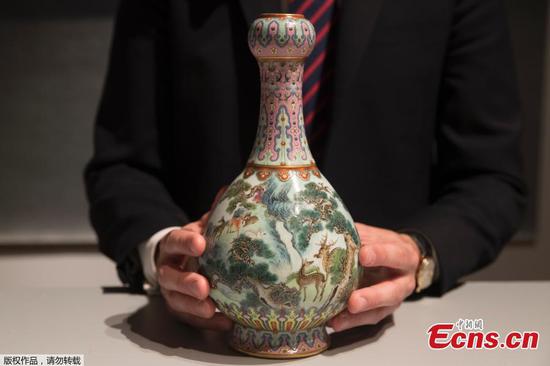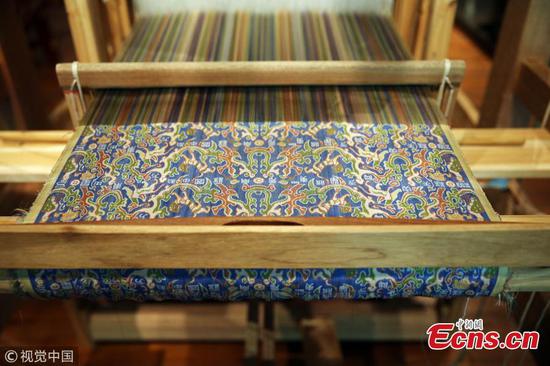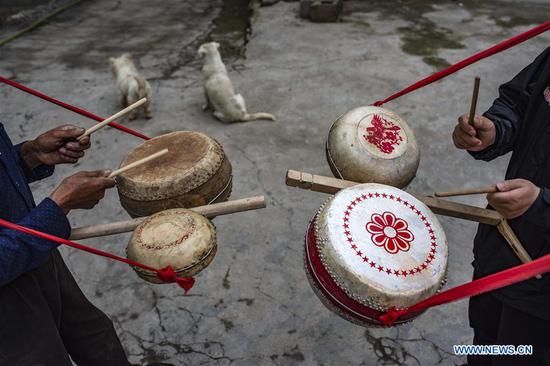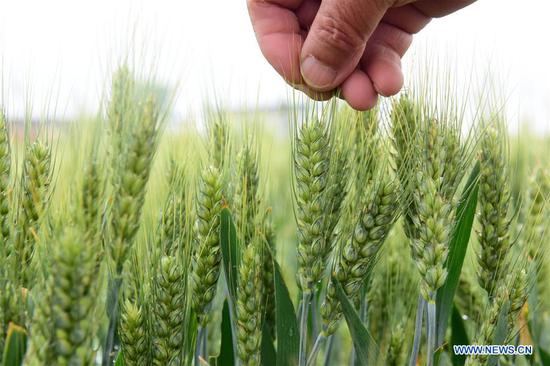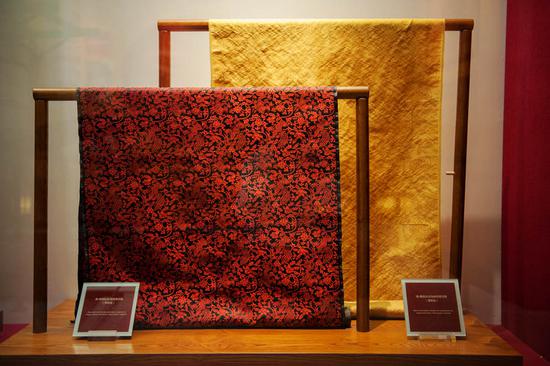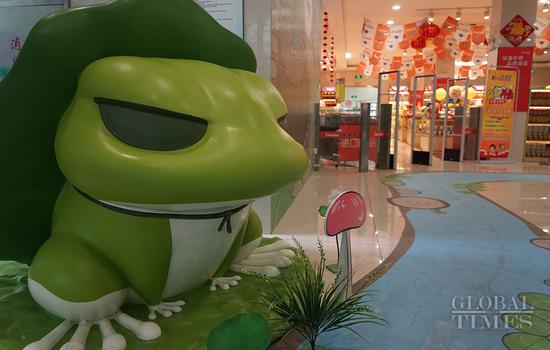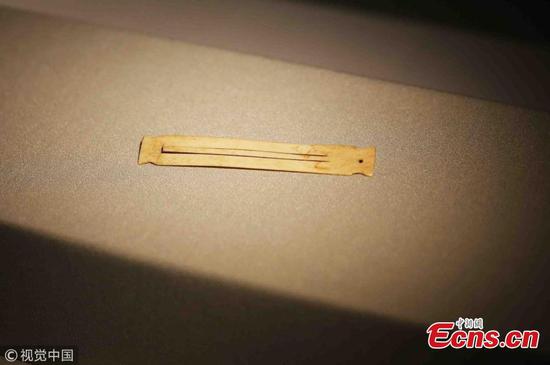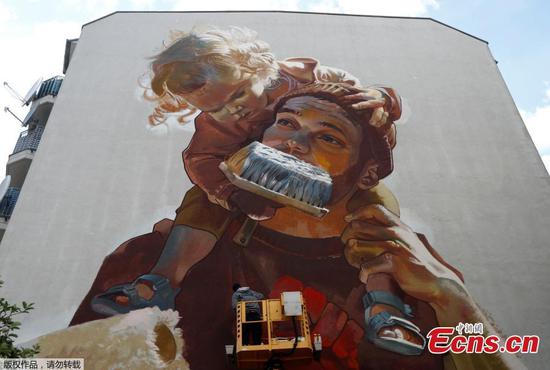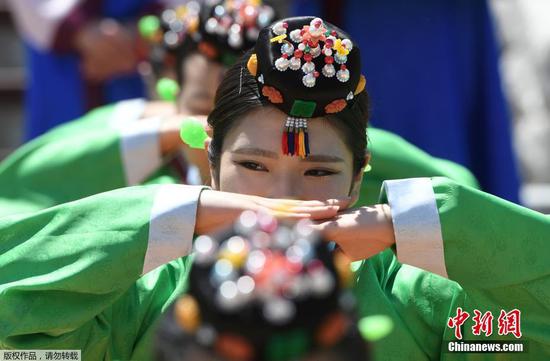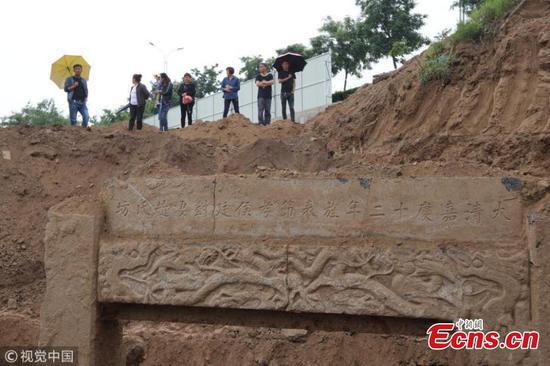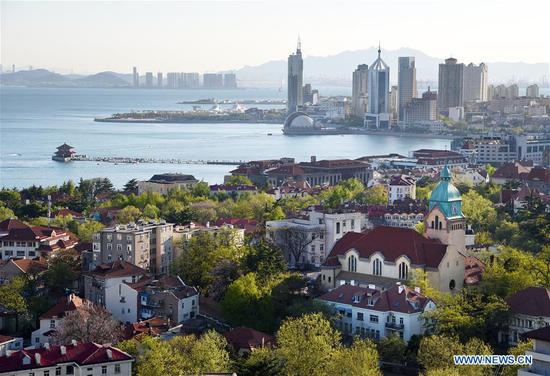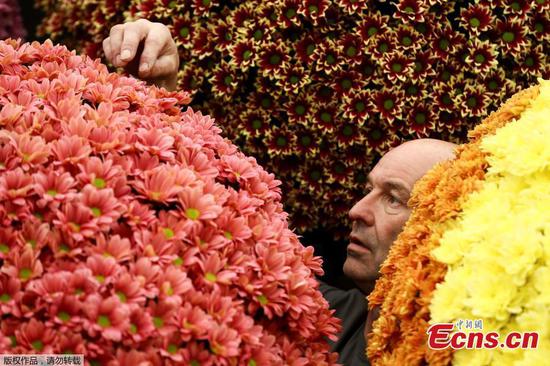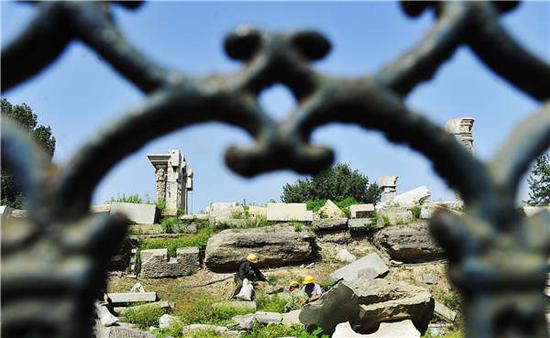
Workers pull weeds at the Yuanying Guan ruins at Yuanmingyuan, or Old Summer Palace, in preparation for a project to preserve the standing pillars. (Photo by Yuan Yi/For China Daily)
Besides functioning as an imperial resort, it was also a place where four Qing emperors (Qianlong, Jiaqing, Daoguang and Xianfeng) often handled affairs of state until 1860, when it was wrecked by invading Anglo-French expeditionary forces during the Second Opium War (1856-60).
"Yuanmingyuan is the zenith of Chinese gardens," said Liu Xiaodong, director of planning department of the administrative office. "Xiyang Lou is a perfect combination of European architecture and Chinese skills - an example of cultural communication between the West and China."
Over time, rain, freezing and looting (villagers often took materials from the ruins to build their own houses during the 20th century's social upheavals) have made the few standing columns unstable.
"The bricks in the foundation of Yuanying Guan have disappeared, exposing the earth," Liu said. "Thick vegetation is another threat."
Some foundations have collapsed. Liu said that if this situation continues, the stone columns themselves, no longer adequately supported, will be in danger.
According to Qin Hai, an engineer at Tsinghua University's Architectural Design and Research Institute, the original foundation will be restored.
"Traditional skills will be used in renovation," he said.
The bricks, for instance, are made of earth, sand, sticky rice, and lime.
A new drainage system will be designed for the site to minimize the impact of rain, but the principle of minimum intervention will be followed for all cultural relics, he added.
Liu, the planning director, said further laboratory analysis is needed to decide whether to take additional measures to repair the upright columns in the next phase of work.



























